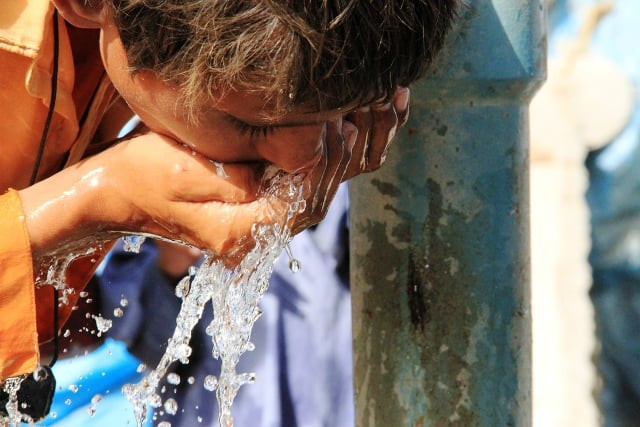Flood relief: Clean drinking water remains the biggest problem says Red Cross
The ICRC has installed eight water treatment units but many people cannot access them.

“With no sustainable recovery in sight people ultimately have to rely on humanitarian aid to survive. For many of them, there is very little chance of being able to get the food and clean water they need on their own,” said Peter Lick, head of the ICRC sub-delegation in Karachi. “Some people are still without shelter. Basic health and hygiene are also concerns as floodwaters stagnate and recede. Most people had not recovered from last year’s devastating floods before disaster struck again.”
From the moment the floods began, providing drinking water has been a major problem. Although the Pakistan Red Crescent Society (PRCS) has installed eight water treatment units, many flood survivors do not yet have access to the clean water they produce.
For the time being, the only solution is to deliver clean water by truck to several flood-stricken cities. This service may have to continue for another two months.
As many as 8.9 million people in 23 districts of the province are reeling from the monsoon rains this year, according to official figures of the National Disaster Management Authority.
As the crisis spread, the PRCS, working together with partners within the International Red Cross and Red Crescent Movement, stepped up its aid efforts. They are now providing aid to over 465,000 people.
Relief activities began in Badin, and gradually expanded to the 10 worst-affected districts. The ICRC has come forward to provide food and basic relief items for over 100,000 people in the flood-stricken districts of Badin, Thatta and Tharparkar through the PRC. They have also provided 1,300 tents and basic supplies for PRCS basic health units and mobile clinics.
Between May and July, the ICRC provided rice seed, fertiliser and tools to help people restart agricultural production. In October, it began its final round of distribution of food and hygiene items to about 210,000 people.
Published in The Express Tribune, October 27th, 2011.



















COMMENTS
Comments are moderated and generally will be posted if they are on-topic and not abusive.
For more information, please see our Comments FAQ